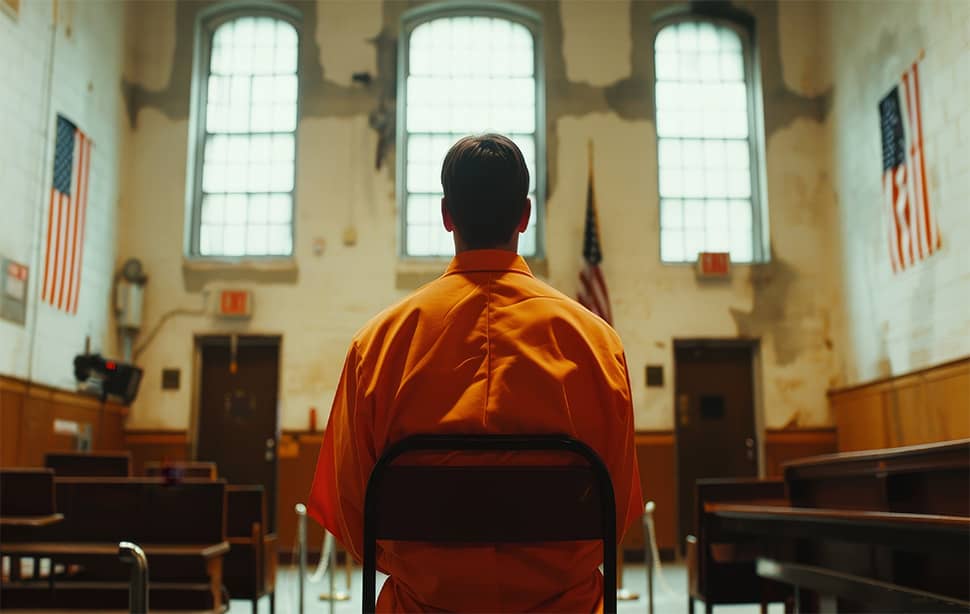What Rights Do Convicted Felons Lose in North Carolina?

A felony conviction comes with a heavy price – one that extends far beyond any time served behind bars. If you or someone you love has been convicted of a felony in North Carolina, it’s crucial to understand the rights and privileges that are lost as a result.
At McMinn, Logan & Gray, PLLC, we’ve seen firsthand how a felony conviction can upend a person’s life, limiting their opportunities and stripping away fundamental rights. In this article, we’ll explore the rights that felons lose and discuss potential paths to restoration.
The Right to Vote
One of the most significant rights lost upon a felony conviction is the right to vote. In North Carolina, if you’ve been convicted of a felony, you lose your voting rights while serving your sentence, including any period of probation or parole. This means that until you complete your entire sentence, you cannot register to vote or cast a ballot in any election, whether it’s local, state, or federal.
The loss of voting rights is governed by Article VI, Section 2(3) of the North Carolina Constitution, which states:
“No person adjudged guilty of a felony against this State or the United States, or adjudged guilty of a felony in another state that also would be a felony if it had been committed in this State, shall be permitted to vote unless that person shall be first restored to the rights of citizenship in the manner prescribed by law.”
The Right to Possess Firearms
Another fundamental right that felons lose is the right to possess firearms. Under both federal law (18 U.S.C. § 922(g)(1)) and North Carolina law (N.C.G.S. § 14-415.1), it is illegal for anyone convicted of a felony to possess, purchase, or own a firearm. This is a lifetime ban, unless your rights are restored through a legal process like expungement or pardon.
If you owned firearms prior to your felony conviction, you must transfer ownership to someone who is legally allowed to possess them, such as a family member or friend who does not live with you. It’s important to note that constructive possession – meaning having access to a firearm in your home, even if it belongs to someone else – can still be a violation of the law for felons.
Is It Possible to Restore Firearm Rights?
In North Carolina, there are limited pathways to restoring your firearm rights after a felony conviction. One option is to seek a pardon from the Governor, which can restore your rights if granted. However, pardons are rare and are generally only granted in exceptional circumstances.
Another potential path is through expungement, which seals your criminal record and can restore certain rights. However, expungement is only available for a limited range of offenses and requires a significant waiting period (usually 10 years or more) before you become eligible.
The Right to Serve on a Jury and Hold Public Office
In addition to losing your right to vote and possess firearms, a felony conviction also strips away your right to serve on a jury or hold public office in North Carolina. This can have a significant impact on your ability to engage in civic life and have a voice in your community.
Under N.C.G.S. § 9-3, any person who has been convicted of a felony is disqualified from serving as a juror unless their rights have been restored. Similarly, Article VI, Section 8 of the North Carolina Constitution bars felons from holding public office until their citizenship rights are restored.
The Privilege to Access Federal Assistance & Benefits
Beyond the loss of civil rights, a felony conviction can also limit your access to federal assistance programs that provide crucial support for housing, food, healthcare, and education.
Some of the programs that may be impacted include:
- Supplemental Nutrition Assistance Program (SNAP or “food stamps”)
- Temporary Assistance for Needy Families (TANF)
- Public housing and Section 8 vouchers
- Federal student loans and grants
The specific restrictions vary depending on the program and the nature of your conviction. For example, a drug-related felony can lead to a lifetime ban on SNAP benefits, while other convictions may limit your eligibility for a certain period of time after your release.
These restrictions can create significant barriers for felons reentering society, making it harder to access basic necessities and get back on their feet. Some states have opted out of the federal bans or created their own programs to provide assistance to felons, but navigating these systems can be complex and challenging.
How to Restore Your Civil Rights After a Conviction
While the rights lost after a felony conviction are significant, it’s important to remember that there are paths to restoration.
In North Carolina, there are several key avenues to explore:
- Completing your sentence: Many rights, like voting and jury service, are automatically restored once you complete your full sentence, including any period of probation or parole.
- Expungement: For certain eligible offenses, you may be able to have your record expunged, which can restore some rights and remove the conviction from your public record.
- Pardon: Seeking a pardon from the Governor can restore rights lost due to a felony conviction, but this is a rare and difficult process.
- Certificate of Relief: This court-issued certificate can remove certain collateral consequences of a conviction, such as barriers to employment or housing, but does not restore all rights.
Restoring your rights after a felony conviction isn’t easy but it’s not impossible. Working with an experienced criminal defense lawyer can make all the difference in understanding your options and advocating for your rights.
At McMinn, Logan & Gray, PLLC, we’ve helped countless clients navigate eligibility requirements, application processes, and court proceedings involved in seeking expungement, pardon, or other forms of relief. Our goal is to help you move forward and regain the rights and opportunities you deserve.
If you or a loved one are facing the consequences of a felony conviction in North Carolina, know that you have options and advocates ready to fight for you. Contact us today to schedule a consultation and learn how we can help.
